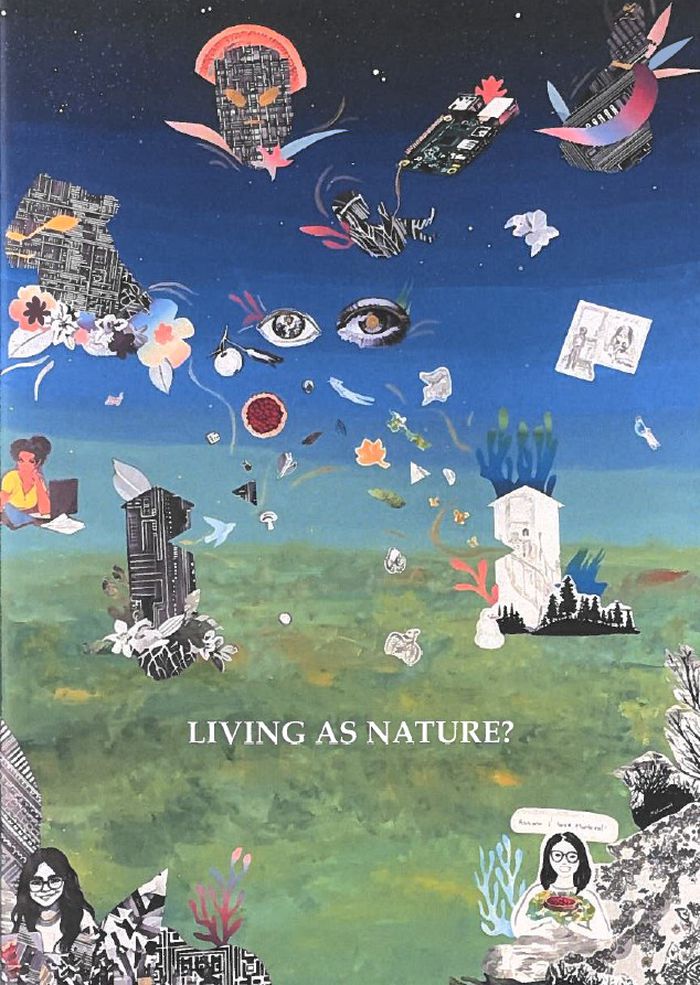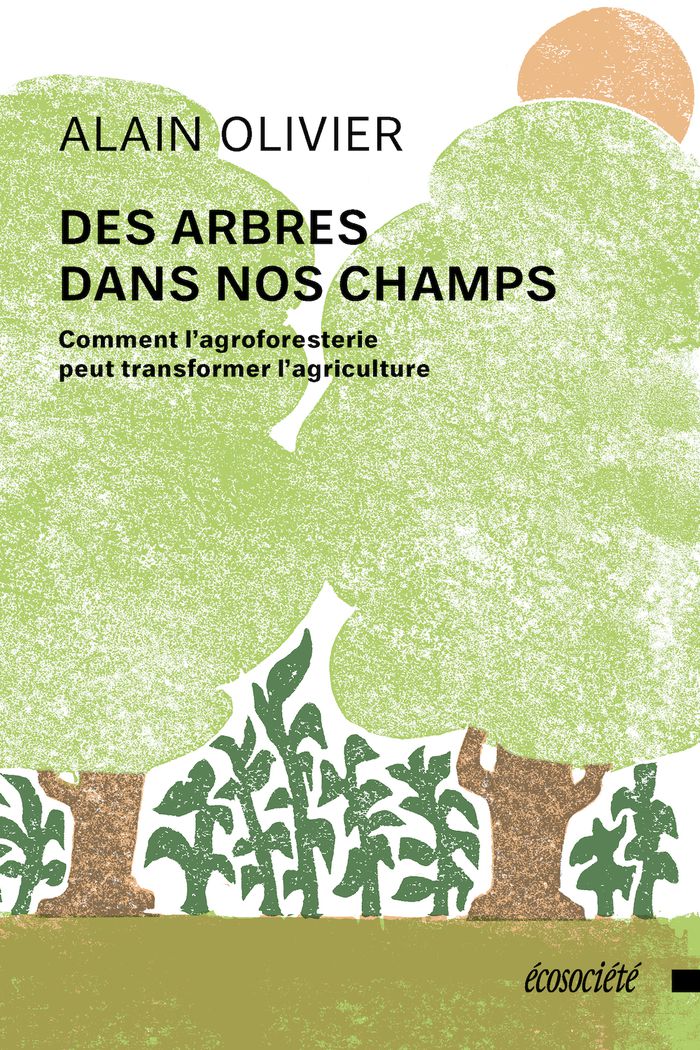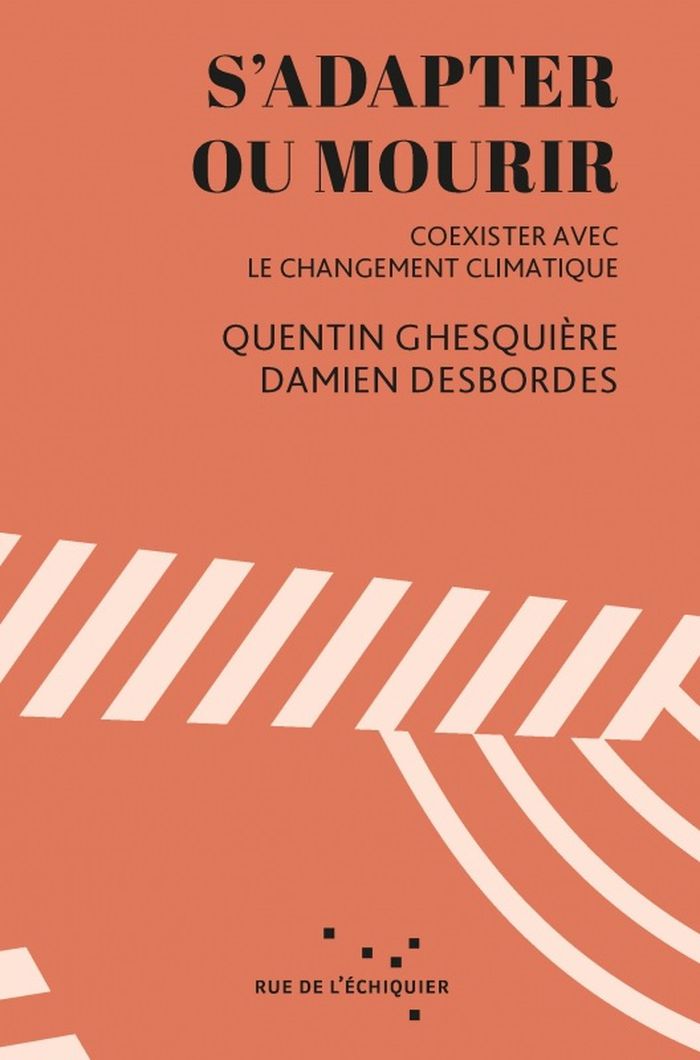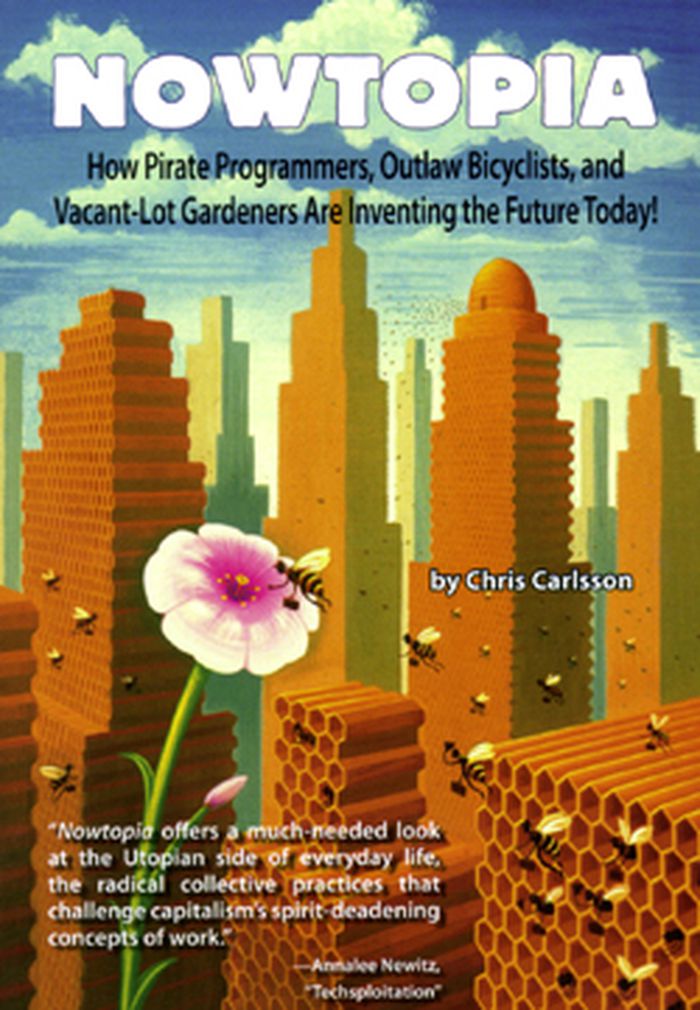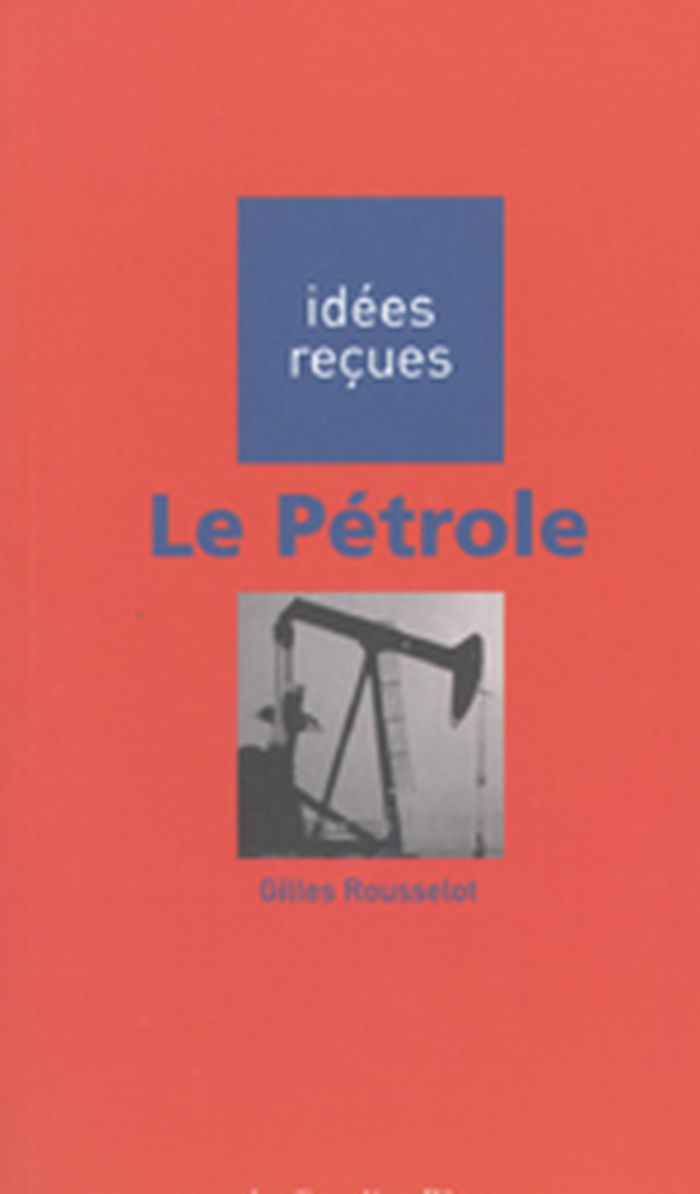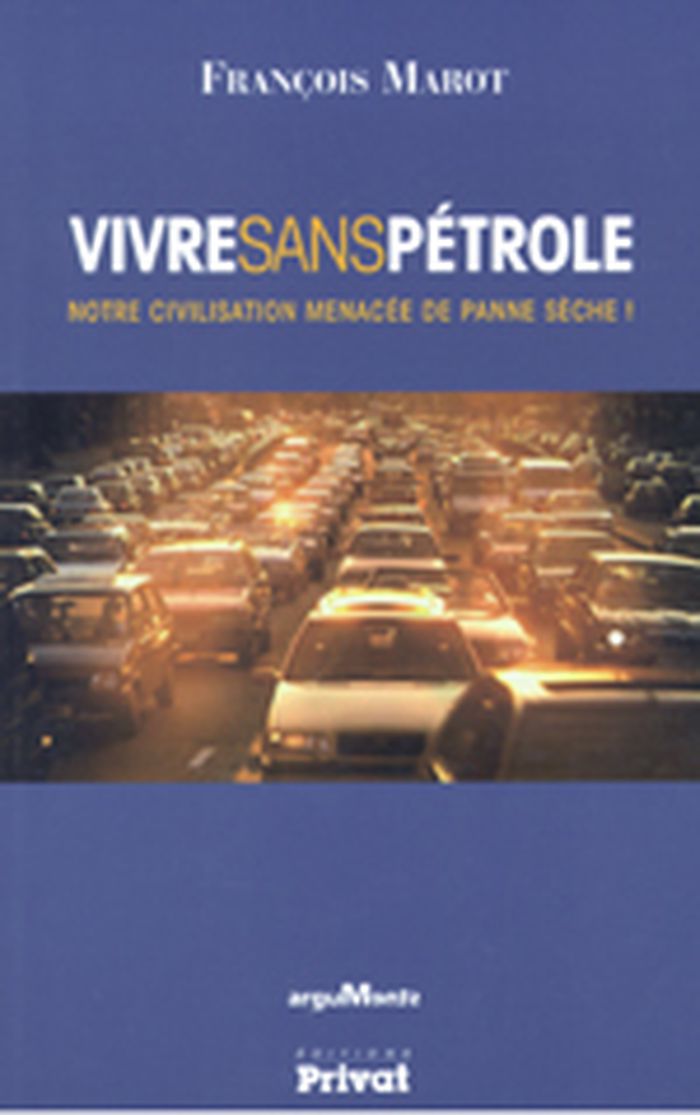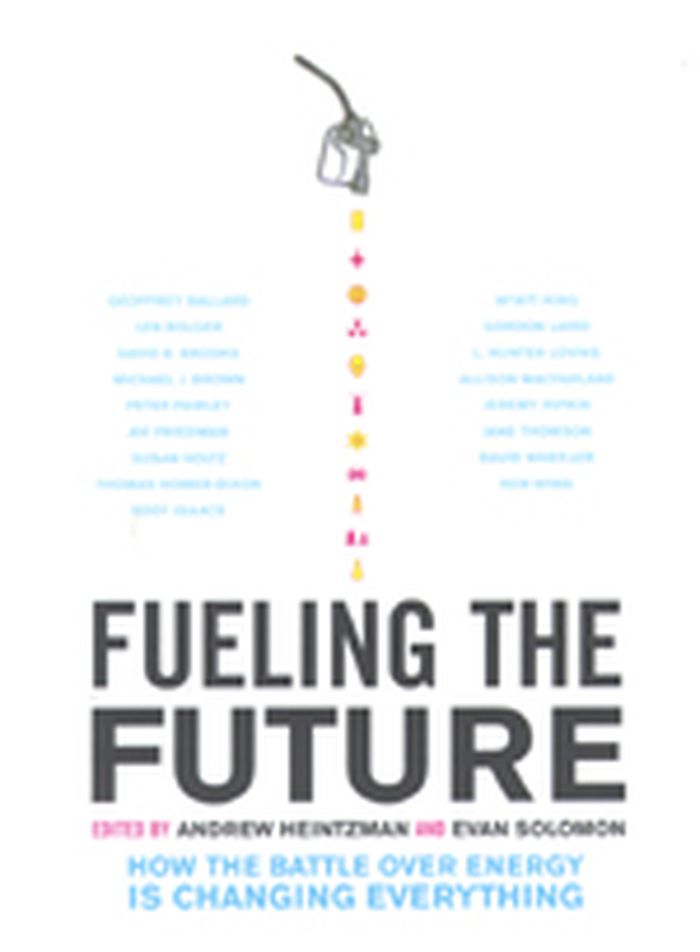Living as nature?
$17.00
(available in store)
Summary:
In a world where artificial intelligence has and increasingly important place in our daily lives, and more and more of our time is spent on screens, what does "Living as Nature" mean anymore? We wanted to answer this question in a two eyed seeing approach, a term coined by Mi’kmaw elder Albert Marshall referring to seeing from one eye with strengths of Indigenous ways of(...)
September 2025
Living as nature?
Actions:
Price:
$17.00
(available in store)
Summary:
In a world where artificial intelligence has and increasingly important place in our daily lives, and more and more of our time is spent on screens, what does "Living as Nature" mean anymore? We wanted to answer this question in a two eyed seeing approach, a term coined by Mi’kmaw elder Albert Marshall referring to seeing from one eye with strengths of Indigenous ways of knowing, and from the other eye with the strengths of Western ways of knowing, and to use both of these eyes together to move forward. This can be seen through the pairing of Wendat values and the principles of the Montréal Declaration for a Responsible Development of Artificial Intelligence. We offer a mirrored reflection on this topic, from the perspectives of a researcher in AI for biodiversity conservation (Mélisande) and an Indigenous landscape architect (Carling): How can AI researchers working on applications in biodiversity reconcile Western science with Indigenous knowledge and ways of knowing of "Living as Nature?"
Des arbres dans nos champs
$35.00
(available in store)
Summary:
Dans la révolution agroécologique aussi urgente que nécessaire à mener, se pourrait-il que les arbres soient des alliés de premier plan? C’est la conviction d’Alain Olivier, pour qui l’agroforesterie a tous les attributs pour nous aider à relever les défis qui sont les nôtres sur le plan agricole. S’appuyant sur une importante littérature scientifique, complétée par les(...)
Des arbres dans nos champs
Actions:
Price:
$35.00
(available in store)
Summary:
Dans la révolution agroécologique aussi urgente que nécessaire à mener, se pourrait-il que les arbres soient des alliés de premier plan? C’est la conviction d’Alain Olivier, pour qui l’agroforesterie a tous les attributs pour nous aider à relever les défis qui sont les nôtres sur le plan agricole. S’appuyant sur une importante littérature scientifique, complétée par les études des équipes de recherche au sein desquelles il a eu la chance de travailler, mais aussi de sa fréquentation d’agricultrices et d’agriculteurs pratiquant l’agroforesterie – y compris de celles et ceux dont il présente un bref portrait –, Alain Olivier nous démontre pourquoi il faudrait faire des arbres nos alliés dans nos champs. Un ouvrage appelé à devenir une référence de premier plan sur le thème de l’agroforesterie.
Environment and environmental theory
Violent images
$39.95
(available in store)
Summary:
Through the lens of various disciplines, ''Violent Images'' investigates the politics of visual violence and its potential to provoke, subvert, and transform social, political, and media discourses. The artists and scholars invited to contribute to this image-text publication discuss "The Whiteness of Silicon Valley's Digital Ecologies" (Stephanie Polsky); "Gender and(...)
Environment and environmental theory
December 2025
Violent images
Actions:
Price:
$39.95
(available in store)
Summary:
Through the lens of various disciplines, ''Violent Images'' investigates the politics of visual violence and its potential to provoke, subvert, and transform social, political, and media discourses. The artists and scholars invited to contribute to this image-text publication discuss "The Whiteness of Silicon Valley's Digital Ecologies" (Stephanie Polsky); "Gender and Violence in News Media and Photography" (Roland Bleiker and Emma Hutchison); transgressive image-making practices (Monica M. Haller), and more. All the contributors critically examine established and emerging visual concepts of violence, suggesting that our engagement with them is inherently political and more pressing than ever. Continuing Giulia Cordin and Eva Leitolf's exploration begun with ''Landscape with(out) Locus'', ''Violent Images'' explores the intricate relationship between visual culture and the social and economic conditions that influence and are influenced by it. It illustrates the need for a more critical and engaged approach to visual representation and communication in the context of local and global conflicts and crises.
Environment and environmental theory
$36.95
(available in store)
Summary:
Le changement climatique n’est plus une menace abstraite, aux conséquences lointaines : en France, il impacte désormais nos vies et nos biens. Sécheresses, inondations, péril sur l’eau et les constructions, disparition des forêts, érosion des côtes, etc. Malgré ces faits avérés, on ne recense aucune véritable stratégie coordonnée entre les acteurs concernés – État,(...)
Environment and environmental theory
October 2025
S'adapter ou mourrir : coexister avec le changement climatique
Actions:
Price:
$36.95
(available in store)
Summary:
Le changement climatique n’est plus une menace abstraite, aux conséquences lointaines : en France, il impacte désormais nos vies et nos biens. Sécheresses, inondations, péril sur l’eau et les constructions, disparition des forêts, érosion des côtes, etc. Malgré ces faits avérés, on ne recense aucune véritable stratégie coordonnée entre les acteurs concernés – État, collectivités territoriales, associations, entreprises, organismes de recherche, etc. Dès à présent, il s’agit de concevoir un plan de bataille, d’oser des réglementations efficaces et de bâtir des infrastructures adaptées. En s’appuyant sur les connaissances et projections scientifiques les plus récentes, Quentin Ghesquière et Damien Desbordes nous démontrent que l’on peut ne plus subir.
Environment and environmental theory
$33.95
(available in store)
Summary:
Dans ce livre qui se penche sur les causes profondes des ravages environnementaux, Anselm Jappe démontre que la continuation de la vie sur Terre est incompatible avec la poursuite du capitalisme. Celui-ci n’est pas à comprendre seulement dans sa forme néolibérale, ou comme domination des riches ou des marchés financiers. Ce sont les catégories de base de l’économie(...)
Écologie ou économie, il faut choisir
Actions:
Price:
$33.95
(available in store)
Summary:
Dans ce livre qui se penche sur les causes profondes des ravages environnementaux, Anselm Jappe démontre que la continuation de la vie sur Terre est incompatible avec la poursuite du capitalisme. Celui-ci n’est pas à comprendre seulement dans sa forme néolibérale, ou comme domination des riches ou des marchés financiers. Ce sont les catégories de base de l’économie moderne – la valeur, le travail, la marchandise, l’argent – ainsi que la forme-État qui conduisent inévitablement à la catastrophe écologique. À partir de ces présupposés, l’auteur examine les débats sur les solutions proposées. D’abord pour montrer l’inefficacité des mesures envisagées par les différents gestionnaires du capitalisme, de droite comme de gauche, parmi lesquels figurent les écologistes institutionnels. Ensuite, pour expliquer comment la résilience pourrait trouver son expression dans des formes d’écoléninisme ou au travers de procédures intégralement gérées par l’intelligence artificielle. Enfin, pour souligner les vertus et les limites d’approches plus radicales (décroissance, écosocialisme, primitivisme, théories du vivant, technocritique…). Tous ces courants souffrent d’une prise en considération insuffisante des dynamiques créées par la valeur et l’argent, le travail et la marchandise, ainsi que par la dimension industrielle et technologique.
Environment and environmental theory
$20.95
(available to order)
Summary:
Chris Carlsson, executive director of the multimedia history project "Shaping San Francisco," is a writer, publisher, editor, and community organizer. He has edited four collections of political and historical essays. He helped launch the monthly bike-ins known as Critical Mass, and was the longtime editor of "Processed World" magazine.
Environment and environmental theory
May 2008, Edinburgh, Oakland, West Virginia
Nowtopia: how pirate programmers, outlaw bicyclists, and vacant-lot gardeners are inventing the future today!
Actions:
Price:
$20.95
(available to order)
Summary:
Chris Carlsson, executive director of the multimedia history project "Shaping San Francisco," is a writer, publisher, editor, and community organizer. He has edited four collections of political and historical essays. He helped launch the monthly bike-ins known as Critical Mass, and was the longtime editor of "Processed World" magazine.
Environment and environmental theory
Le pétrole
$18.95
(available to order)
Summary:
« Le pétrole est une énergie fossile. », « On peut trouver du pétrole n’importe où sous terre. », « Les réserves de pétrole seront bientôt épuisées.»,« Les compagnies pétrolières font d’énormes profits.»,« Le pétrole est la source d’énergie la moins chère. », « La majeure partie des ressources pétrolières est au Moyen Orient. », « En France, on n’a pas de pétrole. », «(...)
Environment and environmental theory
September 2003, Paris
Le pétrole
Actions:
Price:
$18.95
(available to order)
Summary:
« Le pétrole est une énergie fossile. », « On peut trouver du pétrole n’importe où sous terre. », « Les réserves de pétrole seront bientôt épuisées.»,« Les compagnies pétrolières font d’énormes profits.»,« Le pétrole est la source d’énergie la moins chère. », « La majeure partie des ressources pétrolières est au Moyen Orient. », « En France, on n’a pas de pétrole. », « L’OPEP fait sa loi. », « Le contrôle du pétrole a toujours été à l’origine de conflits. », « Les pétroliers sont de redoutables pollueurs.»… Issues de la tradition ou de l'air du temps, mêlant souvent vrai et faux, les idées reçues sont dans toutes les têtes. L'auteur les prend pour point de départ et apporte ici un éclairage distancié et approfondi sur ce que l'on sait ou croit savoir.
Environment and environmental theory
Vivre sans pétrole
$29.50
(available to order)
Summary:
Que se passerait-il si, comme le pensent beaucoup de spécialistes, le prix du pétrole se remettait à flamber ? Si la demande finissait par surpasser l'offre ? Aujourd'hui, personne ne sait, ou ne veut dire, si la décroissance irréversible de la production pétrolière s'amorce déjà. Beaucoup pensent que la pénurie de l'or noir aura lieu en 2015, voire avant. Cet ouvrage(...)
Environment and environmental theory
February 2007, Toulouse
Vivre sans pétrole
Actions:
Price:
$29.50
(available to order)
Summary:
Que se passerait-il si, comme le pensent beaucoup de spécialistes, le prix du pétrole se remettait à flamber ? Si la demande finissait par surpasser l'offre ? Aujourd'hui, personne ne sait, ou ne veut dire, si la décroissance irréversible de la production pétrolière s'amorce déjà. Beaucoup pensent que la pénurie de l'or noir aura lieu en 2015, voire avant. Cet ouvrage étudie en direct la fin d'une civilisation fondée sur l'énergie bon marché et facile à produire. Il imagine la naissance d'un autre monde, dans lequel nos conceptions économiques, sociales et politiques seront ébranlées et où de nombreux secteurs seront touchés de plein fouet : transports, agriculture, cosmétiques... A partir d'études pertinentes, d'interviews et d'enquêtes, François Marot résume la problématique actuelle, décrit l'ampleur des bouleversements futurs et propose des alternatives pratiques pour vivre sans pétrole.
Environment and environmental theory
Fueling the future
$21.95
(available to order)
Summary:
From trips to the market to lighting entire cities, power is pivotal to the simplest of everyday necessities. Wars are fought over it, the planet is polluted by it, but now its price has become too high. Are we capable of shifting to cleaner, safer, more reliable sources of energy? Fueling the Future gathers the best and brightest minds in the field — thinkers like Jeremy(...)
Environment and environmental theory
May 2005, Toronto, Berkeley
Fueling the future
Actions:
Price:
$21.95
(available to order)
Summary:
From trips to the market to lighting entire cities, power is pivotal to the simplest of everyday necessities. Wars are fought over it, the planet is polluted by it, but now its price has become too high. Are we capable of shifting to cleaner, safer, more reliable sources of energy? Fueling the Future gathers the best and brightest minds in the field — thinkers like Jeremy Rifkin, L. Hunter Lovins, and Allison MacFarlane — and uses their collective wisdom to tackle this pressing question from several angles. The experts predict what a world without oil, which is estimated to run out in 50 years, would be like. What new energy alternatives are available? The use of hydrogen and fuel cells is examined, with surprising conclusions. Fresh, efficient prose makes the experts' controversial answers readable and engaging, as well as thought provoking.
Environment and environmental theory
books
Ivan Illich in conversation
$21.95
(available to order)
Summary:
Ivan Illich alights on such topics as education, history, language, politics, and the church. The conversations range over the whole of Illich's published work and public career as a priest, vice-rector of a university, founder of the Centre for Intercultural Documentation in Cuernavaca, Mexico, and author of such classics as Tools for Conviviality, Medical Nemesis, and(...)
Ivan Illich in conversation
Actions:
Price:
$21.95
(available to order)
Summary:
Ivan Illich alights on such topics as education, history, language, politics, and the church. The conversations range over the whole of Illich's published work and public career as a priest, vice-rector of a university, founder of the Centre for Intercultural Documentation in Cuernavaca, Mexico, and author of such classics as Tools for Conviviality, Medical Nemesis, and Deschooling Society.
books
June 1992, Toronto
Environment and environmental theory
